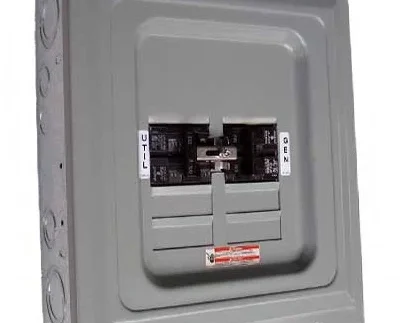Best Solar Panels of 2025: Top Tier 1 Options and Reviews Guide

As the world moves steadily towards sustainable energy, solar power continues to lead the transition. For homeowners and businesses alike, choosing the right solar solution is crucial. Among the various classifications available, the Tier 1 Solar Panel stands out as a top choice for its efficiency, durability, and proven performance. In 2025, the demand for Tier 1 Solar Panel systems is higher than ever, with numerous reputable manufacturers offering high-quality products tailored to both residential and commercial needs.
This guide explores the best Tier 1 Solar Panel options in 2025, reviews industry-leading brands, and helps you make an informed decision about your solar investment.
What Is a Tier 1 Solar Panel?
A Tier 1 Solar Panel refers to a classification given by independent industry analysts like BloombergNEF, based on a manufacturer’s financial stability, vertical integration, investment in R&D, and consistent supply to major solar projects over time. In essence, a Tier 1 Solar Panel comes from a trusted manufacturer that has a strong reputation and robust track record in delivering high-performance solar products.
While the term “Tier 1” doesn’t necessarily indicate the best product performance in every case, it assures buyers of long-term reliability and accountability from manufacturers.
Top Tier 1 Solar Panel Brands in 2025
As of 2025, several brands are consistently recognized for producing top-quality Tier 1 Solar Panel models. These include:
-
Canadian Solar
-
Trina Solar
-
Longi Solar
-
Jinko Solar
-
Q CELLS
-
JA Solar
-
SunPower
-
REC Group
-
First Solar
-
Mission Solar
Each of these companies manufactures panels with high efficiency ratings, long warranties, and robust durability. Their Tier 1 Solar Module lines are ideal for homeowners looking for lasting performance and return on investment.
Benefits of Choosing a Tier 1 Solar Panel
When selecting a Tier 1 Solar Panel, you gain access to several key advantages:
1. Superior Build Quality
Tier 1 Solar Panel manufacturers invest heavily in production technologies and quality assurance. This results in panels that are resistant to environmental wear and degradation.
2. High Efficiency Ratings
Many Tier 1 Solar Panel models offer efficiency levels of 20% or higher, enabling you to generate more electricity from limited roof space.
3. Extended Warranty
Most Tier 1 Solar Panel products come with 25-year product and performance warranties, a testament to their long-term reliability.
4. Better Investment Security
Because these panels are produced by financially stable companies, you are less likely to encounter issues like warranty voids or lack of customer support.
5. Eligibility for Incentives
Some solar rebate programs and incentives may prioritize systems built with Tier 1 Solar Panel components due to their quality assurance and industry recognition.
Choosing the Best Tier 1 Solar Panel for Your Home
When deciding on the best Tier 1 Solar Panel for your home in 2025, consider the following factors:
Panel Type
-
Monocrystalline Panels – These are the most efficient and commonly found among Tier 1 Solar Module offerings.
-
Polycrystalline Panels – Slightly less efficient but often more affordable.
-
Thin-Film Panels – Rare in Tier 1 lines but useful for specialty applications.
Efficiency and Power Output
Look for a Tier 1 Solar Module with an efficiency rating of at least 19%. High-efficiency models can exceed 22%, maximizing output especially in space-constrained areas.
Degradation Rate
High-quality Tier 1 Solar Module models degrade slower over time. Aim for degradation rates below 0.5% annually, ensuring optimal power generation for decades.
Temperature Coefficient
The lower the temperature coefficient, the better your panel will perform in hot weather. This is a key metric in evaluating Tier 1 Solar Module performance in warmer climates.
Residential vs. Commercial Tier 1 Solar Panels
Both residential and commercial sectors benefit immensely from Tier 1 Solar Panel systems, though the application may differ:
-
Residential Systems: Prioritize aesthetics, efficiency, and long warranties. Panels like SunPower’s Maxeon series are excellent for rooftops.
-
Commercial Systems: Emphasize scalability, cost-efficiency, and durability. Brands like Trina Solar and Jinko Solar offer large-format panels suited for commercial rooftops or solar farms.
In both cases, using a Tier 1 Solar Module ensures long-term performance and peace of mind.
What Makes a Tier 1 Solar Panel Stand Out?
Aside from brand reputation, several attributes set a Tier 1 Solar Panel apart from the rest:
-
Advanced cell technology such as PERC, bifacial, or N-Type cells
-
Stringent manufacturing standards backed by ISO certifications
-
Robust testing against environmental stress like hail, wind, and snow load
-
Bankability, meaning large-scale projects and investors trust the brand
These features ensure a Tier 1 Solar Panel isn’t just marketing fluff—it’s a symbol of excellence in solar technology.
Cost of Tier 1 Solar Panels in 2025
The cost of installing a Tier 1 Solar Module system in 2025 varies depending on location, system size, and panel brand. On average:
-
System Size: 6 kW to 10 kW (typical for residential)
-
Cost: ₹12–₹20 per watt in India or $2.50–$3.50 per watt in the US
-
Total Investment: ₹7,20,000 to ₹20,00,000 or $15,000 to $25,000 (inclusive of panels, inverter, installation, etc.)
While Tier 1 Solar Panel systems may carry a premium, their higher efficiency and better warranties provide greater returns over time.
Are There Affordable Tier 1 Solar Panel Options?
Yes, not all Tier 1 Solar Panel options are expensive. Brands like JA Solar, Trina Solar, and Longi Solar offer competitively priced panels that still meet Tier 1 standards. Additionally:
-
Incentives and Tax Credits: Government programs can reduce upfront costs.
-
Financing Plans: Many installers offer zero-down solar loans or leasing options.
-
Group Buys or Solar Cooperatives: These help negotiate lower rates for bulk installations.
By taking advantage of these strategies, you can secure a Tier 1 Solar Panel system at a more affordable price point.
Tier 1 vs. Tier 2 and Tier 3 Solar Panels
Understanding the differences between Tier 1 Solar Panel and lower-tier panels is essential:
| Feature | Tier 1 Solar Panel | Tier 2/3 Solar Panel |
|---|---|---|
| Manufacturer | Reputable & Bankable | Less known or new |
| R&D Investment | High | Limited |
| Warranty | 25+ Years | Often 10–15 Years |
| Degradation Rate | Low (Better Longevity) | Higher |
| Field Performance | Proven | Uncertain |
| Customer Support | Robust Global Network | Inconsistent |
While some Tier 2 or Tier 3 panels can perform decently, the risk is higher. A Tier 1 Solar Module offers peace of mind for long-term investments.
Installation and Maintenance of Tier 1 Solar Panels
Installing a Tier 1 Solar Module system is similar to other solar setups, but professional installation is key to maximizing efficiency. Regular maintenance includes:
-
Cleaning panels at least twice a year
-
Monitoring performance through apps or portals
-
Scheduling annual inspections to check for wiring or inverter issues
Because Tier 1 Solar Module systems come from established companies, you’ll have access to robust after-sales support and service networks.
Final Thoughts: Is a Tier 1 Solar Panel Worth It?
Absolutely. In 2025, a Tier 1 Solar Panel offers unmatched reliability, efficiency, and long-term financial savings. Whether you’re a homeowner trying to reduce your energy bills or a business looking to enhance sustainability, investing in a Tier 1 Solar Module system ensures that you’re making a smart, future-proof decision.
By choosing trusted brands and focusing on system quality, you’re not just installing solar panels—you’re committing to decades of clean, renewable energy.
Summary:
The best solar panels in 2025 come from the Tier 1 Solar Module category, recognized for their exceptional quality and long-lasting performance. From reduced energy costs to increased property value, the benefits of switching to solar—especially with Tier 1 equipment—are undeniable. Make sure to do your research, get multiple quotes, and always choose certified installers to get the most out of your solar journey.







